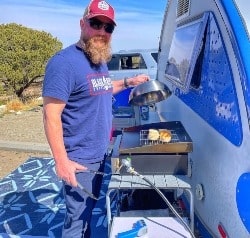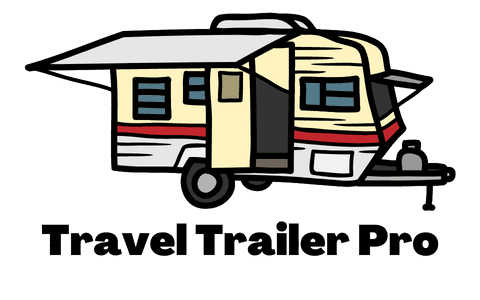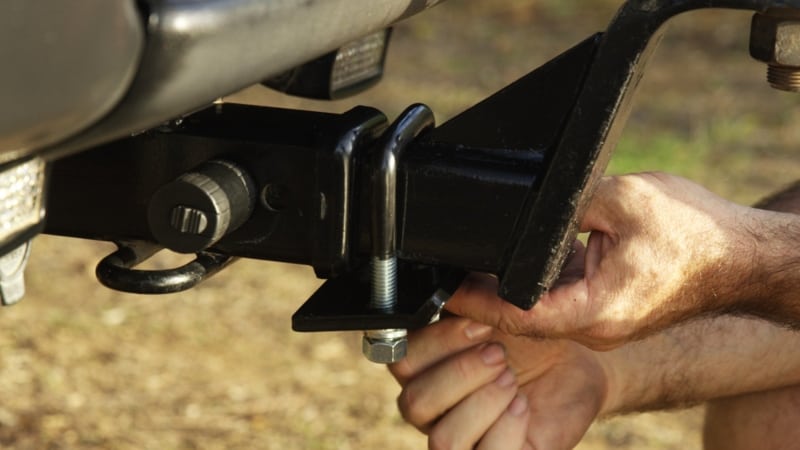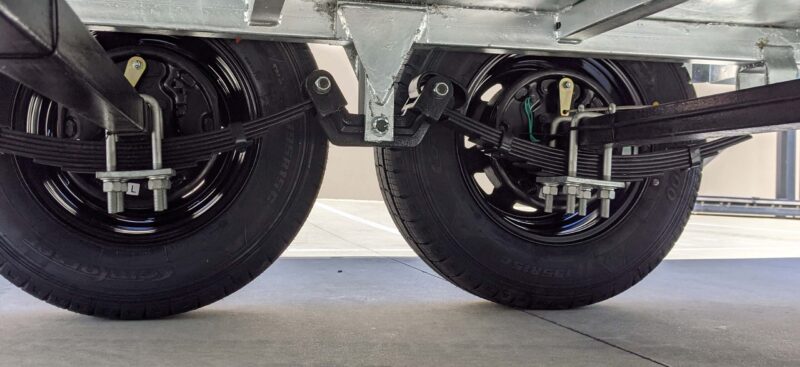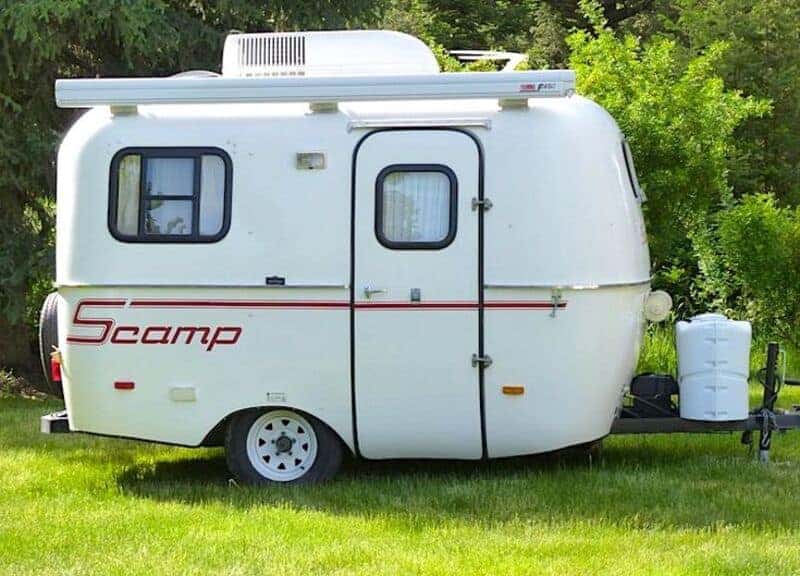There’s nothing more annoying than traveling down the road, listening to your travel trailer hitch squeaking. It’s a common problem that we’ll all face with our travel trailer at some point. To stop trailer hitch squeaking there are some simple measures that you can take.
In this article, we’re going to take a look at some of the common reasons your travel trailer hitch squeaks. We’ll then offer some ways that you can stop the trailer hitch from squeaking. Many fixes are easy and inexpensive, while others are a bit more elaborate.
Why Does My Trailer Hitch Squeak?
The reason that your trailer hitch squeaks has to do with friction between the ball of your tow vehicle and the coupler on your trailer. When the ball and coupler are new, they’re coated with a thin layer of smooth metal. Over time, and after numerous road trips, the top metal coating wears off.
This friction is the most common cause of trailer hitch squeaking. However, there are other reasons that you may notice squeaking when pulling your travel trailer. One source of trailer hitch squeaking may be that your travel trailer is overloaded. Make sure that you haven’t exceeded the tongue weight of your trailer.
Squeaking can also be noticeable with different road conditions. Dusty or uneven roads may cause squeaking, even if your trailer and hitch are brand new. This is simply caused by a buildup of dust between the ball and the coupler.
How Much Noise Is Normal?
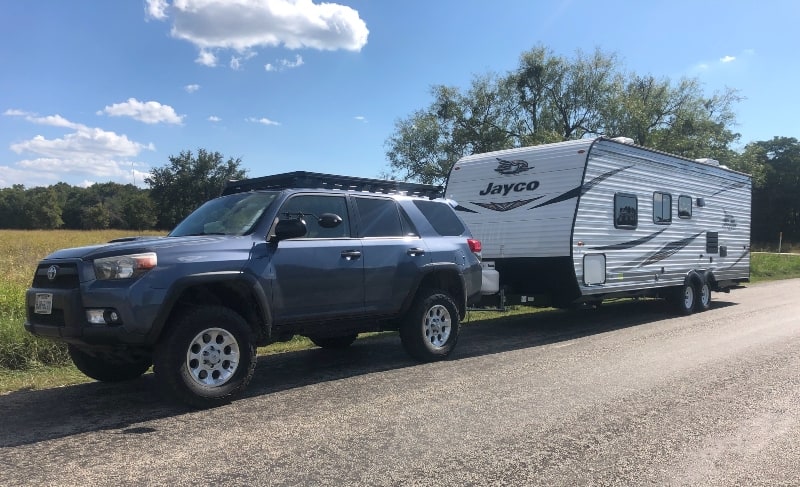
Hitch noises and squeaking are a normal part of pulling a travel trailer. You will almost always notice squeaking, clunking, or chucking when you’re traveling on rough or uneven ground.
Occasional squeaking is normal for all travel trailers. If you’re noticing that your trailer hitch squeaks constantly when traveling, you’ll want to take action to remedy the problem.
How Do You Quiet a Noisy Hitch? 7 Solutions
Fortunately for most of us, the way to stop trailer hitch squeaking can be simple and affordable. Solutions range from temporary to permanent. In this section, we offer 7 easy ways to stop trailer hitch squeaking.
1. Grease Lubricants
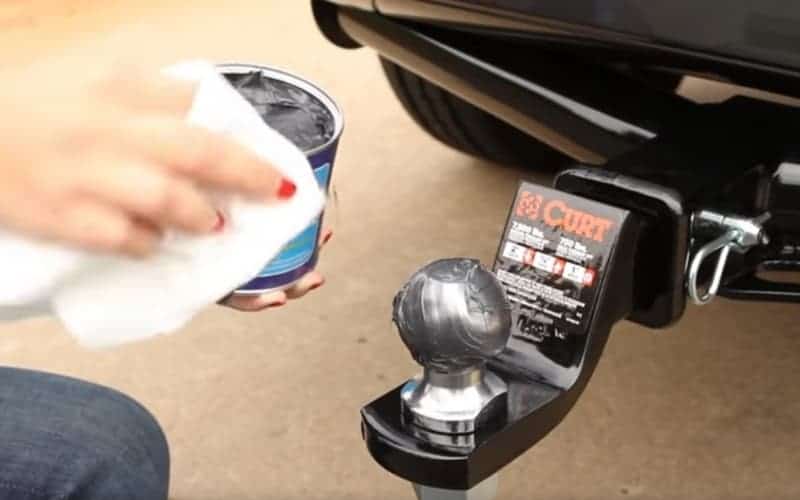
Adding a bit of lubrication to your tow hitch or ball can be a quick solution to stop the trailer hitch from squeaking. This solution is not a permanent solution. If you’re on the road and just cannot handle another mile with a squeaking hitch, lubrication is quick and easy.
You don’t have to invest in an expensive lubricant to get results. While there are products that are better than others, in a pinch, you can use products like dish soap, candle wax, or shampoo. These products are a quick fix until you can find a more permanent solution.
The ideal lubricant is a high friction grease. They’re thicker and hold up to weather conditions better than thinner versions.
2. Check Your Tongue Weight
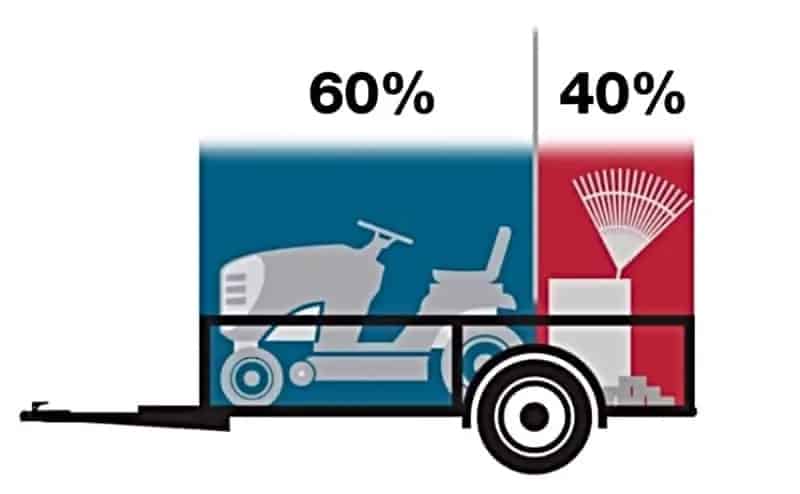
Overloading the tongue of your trailer can be another reason for a squeaking trailer hitch. Make sure that you aren’t loading all of your heavy items at the front of your trailer. Evenly distribute your gear throughout your trailer to reduce tongue weight.
Besides causing annoying squeaking, overloading the tongue of your travel trailer can be unsafe, and create dangerous traveling conditions. Ideally, you want 60% of your RV’s storage weight in front of the RV’s axles and 40% behind.
Learn more about how to balance your RV’s storage weight and more in our article, Why You Must Understand Tongue Weight When Towing.
3. Hitch Ball Covers
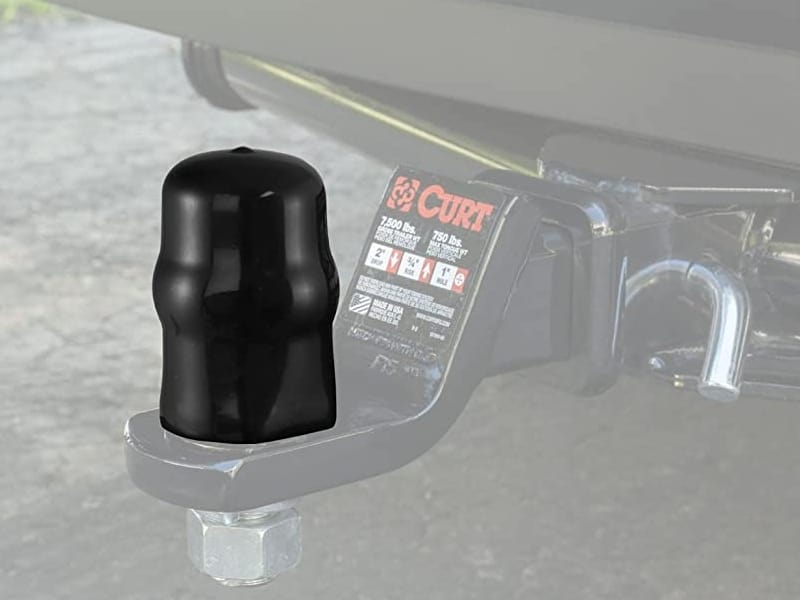
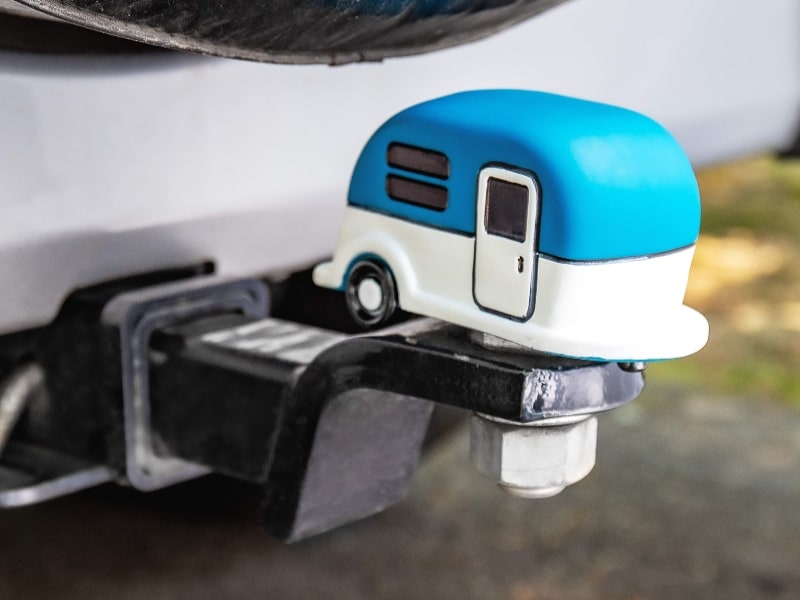
Ball covers are a good solution to stop trailer hitch squeaking. The purpose of a ball cover is to protect your hitch ball from the elements and corrosion. Hitch ball covers come in a wide range of styles, colors, and shapes.
You’ll pay more for fancier ball covers. One product that we like is the CURT 21800 Black Rubber Trailer Hitch Ball Cover. This ball cover is a simple design and is highly affordable. This is a great way to protect your hitch ball.
Although, for a bit more, Camco’s Life Is Better At The Campsite Hitch Ball Cover, does have its appeal.
4. Anti-Rattle Clamp
If the cause of your trailer hitch squeaking is due to your hitch not fitting securely in the receiver, try an anti-rattle clamp or pin. These simple products provide added stability for your hitch in the receiver. If you want to keep your hitch secure, we have two products that you might consider. The first is the CZC AUTO Anti-Rattle Hitch Tightener.
This u-shaped bolt wraps around your hitch at the receiver. When the plate is tightened, the hitch is restricted from moving up and down. This can reduce unwanted sway and squeaking.
5. Anti-Rattle Hitch Pin
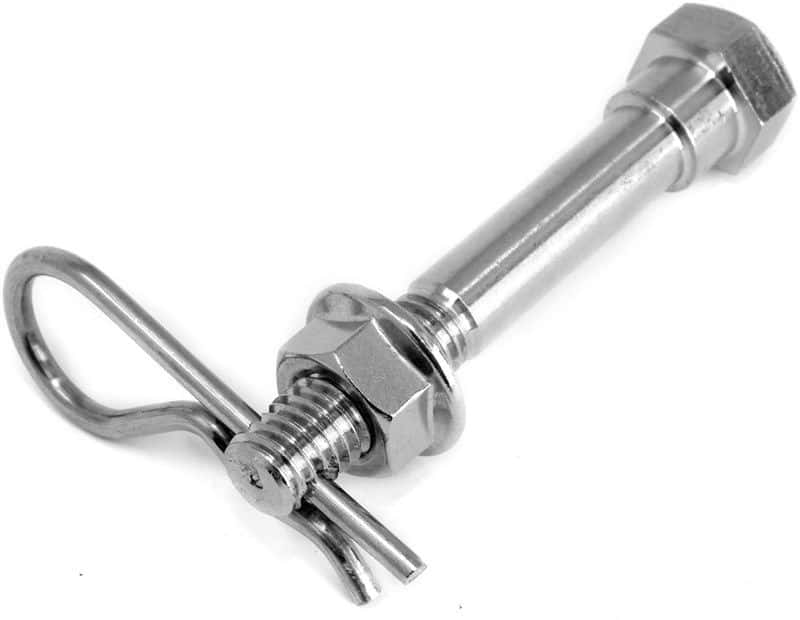
Another good product to consider is the eVerHitch Anti-Rattle, No-Wobble Hitch Pin Bolt. This product uses a nut along with the typical hitch pins to secure the hitch in the receiver. This product provides a full range of support for your hitch. It will reduce side-to-side sway and up and down bucking due to a loose hitch.
6. Cushion Hitch
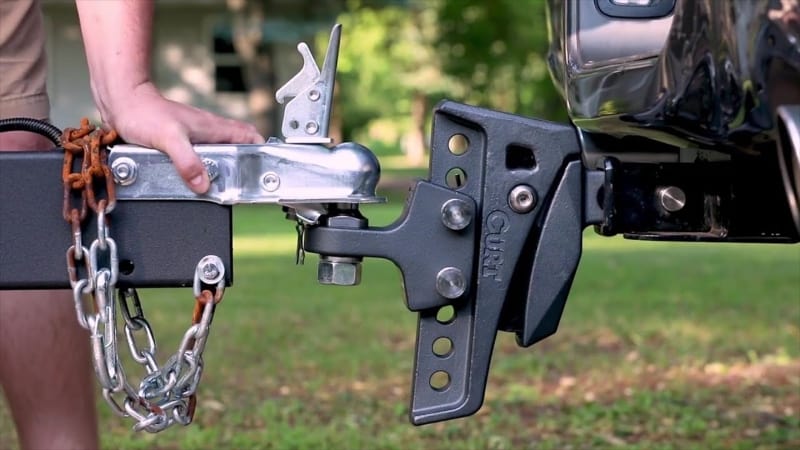
Cushion hitches are a unique option and are great for larger bumper-mounted travel trailers. A cushion hitch works by providing a hinge for your trailer to dampen road shock.
Instead of being a rigid connection, the cushion hitch allows the trailer to flex and flow with uneven terrain or even just bumps and dips in your neighborhood. The CURT 45955 Rebellion XD Adjustable Cushion Hitch is a good option.
Though this is the most expensive solution for resolving hitch squeaking, it’s also the most sturdy. Besides resolving hitch squeaking, a cushion hitch also reduces vibration and makes jerking or bucking less noticeable.
7. Hitch Silencer Pad
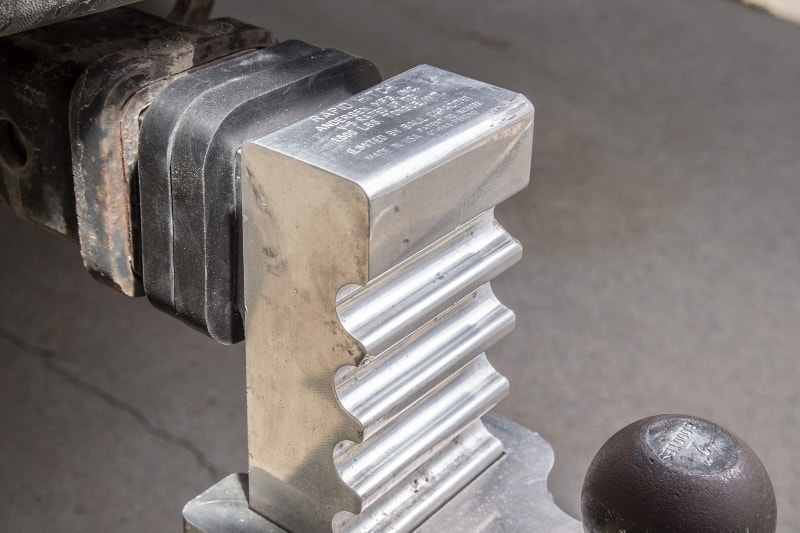
Hitch silencer pads are another affordable way to reduce hitch noises. These soft pads, like the Mission Automotive Hitch Receiver Silencer Pad, stack around your hitch, providing an additional cushion for the receiver.
Sometimes during travel, your hitch will move forward and back in the receiver. These pads reduce the noise from this normal action.
How Do You Lubricate a Trailer Hitch?
Lubricant is the easiest way to stop the trailer hitch from squeaking. It’s also the most convenient way to eliminate annoying sounds from your trailer hitch when you are on the road. Most auto parts or hardware stores carry a product you can use to lubricate your trailer hitch.
You’ll want to apply lubricant with the trailer separated from the hitch. This’ll allow you to get a layer of grease over the entire ball and coupler. For best results, wipe down the ball and coupler with a damp cloth, before applying a lubricant product, if possible.
Then, after it dries, apply a good layer of lubricant to both the ball of your hitch and the coupler on your trailer.
Can You Use WD-40 on a Trailer Hitch?
In a pinch, WD-40 can be used to lubricate a trailer hitch. However, it’s not a very robust product and can make a mess. Other products are considered high-friction lubricants that’ll work much better than WD-40.
If you use WD-40 in a moment of need, just make sure to clean your hitch and coupler before switching to a different product.
Travel Trailer Pro Tip On Using WD-40 To Stop A Travel Trailer Hitch From Squeaking: For the best results, you want to use WD-40’s dry lube spray lubricant that’s made for metal-on-metal lubrication instead of the standard version. Many brands make a dry formula as well. The best part is that it doesn’t attract dust or dirt. It’s good for your jacks, seals, and other components.
Best Products to Lubricate a Trailer Hitch
If you are looking for a good lubricant for your trailer hitch, there are plenty of great options out there. You should find one that fits your needs best, but here are a few to help you narrow the options.
1. Mission Automotive Trailer Hitch Ball Lube
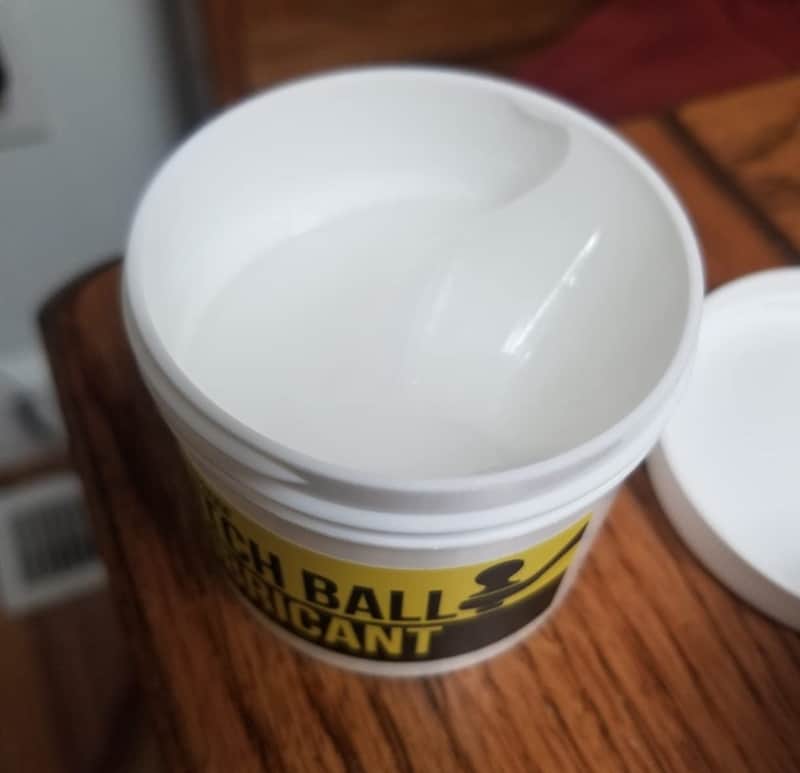
A great product specifically designed for trailer hitch balls is Mission Automotive Trailer Hitch Ball Lube. This lubricant is a high-friction grease that’s waterproof and non-staining. It uses PTFE (a Teflon-type product) to reduce sticking. This product is also made in the USA!
2. 3-IN-One Trailer Hitch Gel Lube
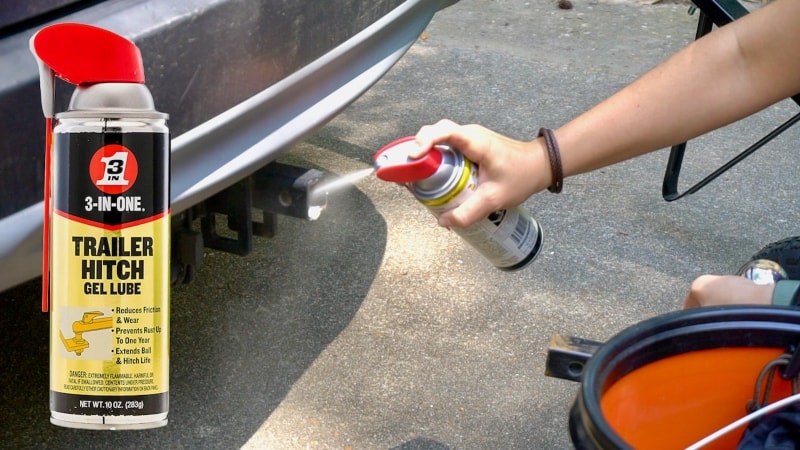
The 3-in-One Trailer Hitch Gel Lube gives you three benefits from one product. First, it reduces friction on your hitch ball, so there’s less noise. Second, it helps prevent rust on your hitch ball and trailer coupler. Finally, it helps make connecting and disconnecting your trailer easier.
You see it often in Walmart, but is 3-in-One a good brand? It’s made by WD-40 if that answers your question.
3. B’Laster 8-GS Graphite Dry Lubricant
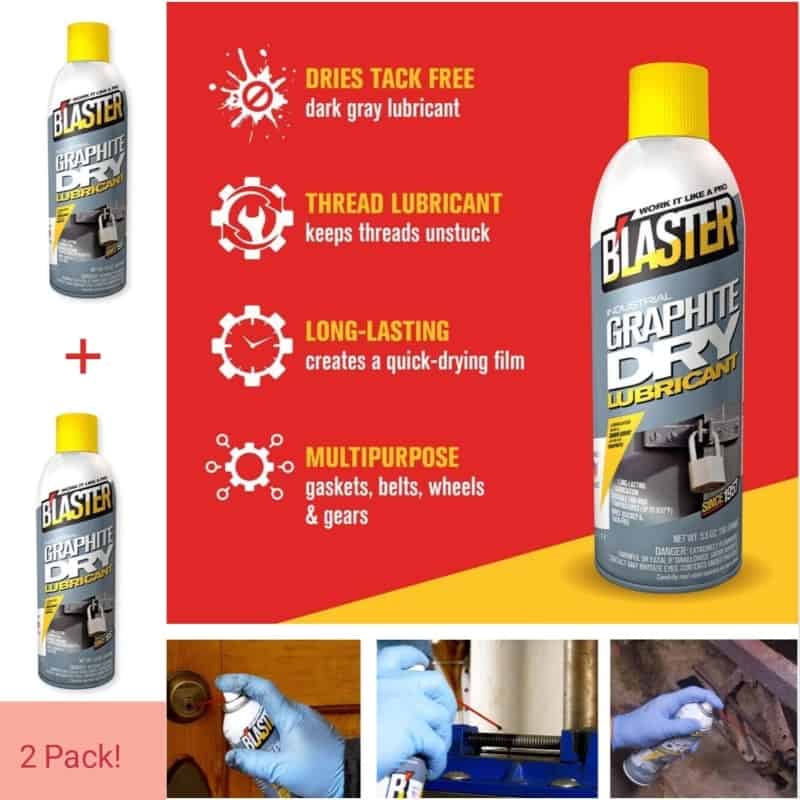
If you want a good lubricant but don’t want a greasy mess, B’Laster 8-GS Graphite Dry Lubricant hits the mark. This dry lubricant is graphite-based and though not greasy, is a great high-friction lubrication product.
This is a good multi-purpose lubricant to carry in your travel trailer. Not only does it help with hitch squeaking, but it can also help with squeaking door hinges, sticky locks, jacks, and some seals.
Final Thoughts on How to Stop a Trailer Hitch from Squeaking
Traveling in comfort with your travel trailer comes with a lot of factors. Squeaking from your hitch can quickly reduce your traveling bliss. To stop trailer hitch squeaking, you have a variety of options.
Some are easy and inexpensive; others are long-lasting solutions. Whether you choose a simple lubricant or a cushion hitch, both will quickly improve your travel comfort, reducing that annoying squeaking that comes from your trailer hitch.
Related Reading:
1. Should You Grease Your Trailer Hitch Ball Or Not?
2. How To Reduce Tongue Weight On A Travel Trailer
3. Why You Must Understand Tongue Weight When Towing
4. 17 Essential RV Spare Parts To Carry
About the Author:
Jason Gass is a full-time freelance writer and part-time RVer whose goal is to share great stories around a campfire with good friends.
When he’s not working, he spends most of his time camping, searching for the best breweries, and road-tripping in his teardrop trailer with his wife, daughter, and two dogs.
